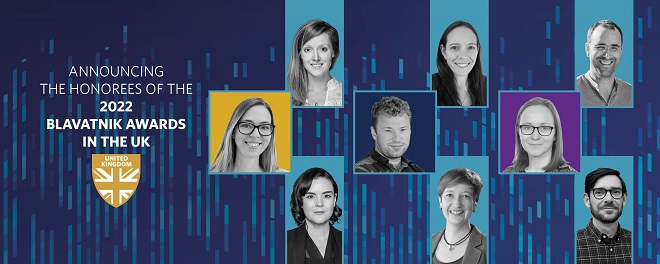
- Largest unrestricted prize for young scientists awards £100,000 each to three scientists from UK universities and institutions for their work across Life Sciences, Physical Sciences & Engineering, and Chemistry
- Six additional UK Finalists to receive £30,000 each
- For the first time, University of Nottingham and the University of St Andrews represented amongst the honoured Blavatnik Awards institutions
- First year that twice as many women are announced as Laureates (2) and Finalists (4) than men
- Prize money increased in 2022 from £350,000 to £480,000 ( ̴US$650,000)
London, UK: Today, the Blavatnik Family Foundation and the New York Academy of Sciences have announced the recipients of the 2022 Blavatnik Awards for Young Scientists in the United Kingdom. Now in its fifth year, the Awards are the largest unrestricted prize available to UK scientists aged 42 or younger. They are fast becoming internationally recognised among the scientific community as instrumental in expanding the engagement and recognition of young scientists, and providing a strong foundation on which science can prosper.
This year’s Laureates, who will each receive £100,000, are:
- Kim Jelfs, PhD (Chemistry) – Imperial College London
- Matthew Brookes, PhD (Physical Sciences & Engineering) – University of Nottingham
- Madeline Lancaster, PhD (Life Sciences) – MRC Laboratory of Molecular Biology (LMB)
In each of the three categories—Chemistry, Physical Sciences & Engineering, and Life Sciences—a jury of leading scientists from across the UK also selected two Finalists, who will each receive £30,000. The 2022 Finalists are:
- Gonçalo Bernardes, DPhil (Chemistry) – University of Cambridge
- Stephen Thomas, PhD (Chemistry) – The University of Edinburgh
- Sarah Haigh, DPhil (Physical Sciences & Engineering) – The University of Manchester
- Anja Schmidt, PhD (Physical Sciences & Engineering) – University of Cambridge
- Erin Saupe, PhD (Life Sciences) – University of Oxford
- Sonja Vernes, DPhil (Life Sciences) – University of St Andrews
These honourees are recognised for their research, which is already transforming technology and our understanding of the world.
“The remarkable scientific talent and research in the UK grows stronger every year,” commented Sir Leonard Blavatnik, Founder and Chairman of Access Industries and head of the Blavatnik Family Foundation. “The brilliant, innovative work for which this year’s Laureates and Finalists are recognised and honoured improves our world for the better and further extends the boundaries of scientific knowledge and understanding.”
Professor Nicholas B. Dirks, President and CEO of the New York Academy of Sciences and Chair of the Awards’ Scientific Advisory Council noted, “Society cannot surmount world crises like the COVID pandemic without science. It is critical that we continue to invest in science and these young, trail-blazing scientists who have the energy, optimism, and brilliance to continue developing scientific solutions benefitting millions, even billions, of people. On behalf of the Academy, we are honoured to administer the Blavatnik Awards in the UK in its fifth year and we are thrilled to see a growing list of UK institutions submitting nominations since the program was established. We are also excited to honour six women in 2022.”
Dr. Kim Jelfs has been named the Chemistry Laureate. At Imperial College London, she has developed revolutionary computer software that enables the accelerated discovery of new materials. The software is capable of predicting not only the structure of materials before they are created, but also their unique properties and functions.
The Laureate in Physical Sciences & Engineering is Professor Matthew Brookes. At the University of Nottingham, he has created a new magnetoencephalography (MEG) technology that influences functional brain imaging capabilities. His invention allows the mapping of brain connections in moving subjects and opens up a wide range of new paradigms and subject groups for study such as non-invasive imaging of children’s brains.
The Life Sciences Laureate, Dr. Madeline Lancaster, from the MRC Laboratory of Molecular Biology (LMB) has created the first method for generating brain organoids, which are artificially grown in vitro from human induced pluripotent stem (iPS) cells. These miniature organs share many features with the brain, which can be exploited to investigate the blood-brain barrier, primate brain evolution, foetal brain development, and disease.
Further details on all of this year’s honourees are available below.
The 2022 Blavatnik Awards for Young Scientists in the UK received 94 nominations from 47 academic and research institutions across the UK. The Blavatnik Awards in the UK sit alongside their global counterparts, the Blavatnik National Awards and the Blavatnik Regional Awards in the United States and the Blavatnik Awards in Israel, all of which honour and support exceptional early-career scientists. By the close of 2022, the Blavatnik Awards will have awarded prizes totalling US$13.6 million. About 60 percent of all recipients are immigrants to the country in which they were recognised, and honourees hail from 48 countries across six continents, reflecting the Blavatnik Family Foundation’s recognition that important science is a global enterprise.
The 2022 Blavatnik Awards in the UK Laureates and Finalists will be honoured, as COVID-19 restrictions allow, at a black-tie gala dinner and ceremony at the Victoria and Albert Museum (V&A) in London, currently scheduled for 28th February 2022. The following day, on 1st March 2022 from 11:00 to 18:00 GMT, the honourees will present their research with a series of short, interactive lectures at a free public symposium also to be held at the V&A. More details about the symposium will be posted soon on the website of the New York Academy of Sciences, NYAS.org.
###
Notes to Editors
To follow the progress of the Blavatnik Awards, please visit the Awards’ website (www.blavatnikawards.org) or follow us on Facebook and Twitter (@BlavatnikAwards).
For media requests, please contact:
Kamala Murthy – kmurthy@nyas.org; +1-212-298-3740
Hannah Cullimore – Hannah.Cullimore@hkstrategies.com; +44 20 7413 3041
For further details about the 2022 Blavatnik Awards in the UK Laureates and Finalists, the Blavatnik Family Foundation, and the New York Academy of Sciences, please see below.
About the Laureates
Chemistry
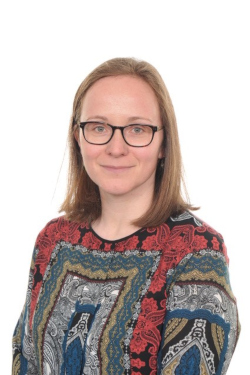
Kim Jelfs, PhD
Imperial College London
Most materials are made up of molecules and atoms that assemble in an orderly fashion. Materials that are composed of discrete molecular entities held together by weak, intramolecular bonds between molecules are often referred to as supramolecular assemblies. Though these assemblies can have unique properties and functions, their characteristics are difficult to predict without actually synthesising them in a laboratory—a process that is time-consuming and often gives unpredictable results. Dr. Kim Jelfs has developed revolutionary, open-source software capable of predicting the properties and functions of advanced supramolecular materials. Her development has led to collaborative work with synthetic laboratories all over the world and subsequently the creation of new molecules and materials with properties ranging from photonics to energy storage, that would not have been possible without her predictive software.
Physical Sciences & Engineering
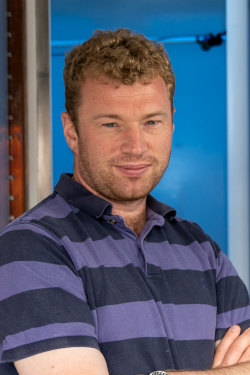
Matthew Brookes, PhD
University of Nottingham
Prof. Matthew Brookes is internationally-acclaimed for his contributions to human brain imaging, and particularly for his work using magnetoencephalography (MEG) to study the function of the human brain. MEG measures tiny magnetic fields generated by the electrical currents that flow through neurons. These neuronal signals allow mapping of functional networks on a millisecond-by-millisecond basis as they form and dissolve in support of cognition. His research uses novel types of quantum sensors to measure these fields, providing greater accuracy and spatial precision, and opening up the possibility of imaging brain activity in moving subjects, young children, adults in active motion, and patients with neurological disorders.
Life Sciences
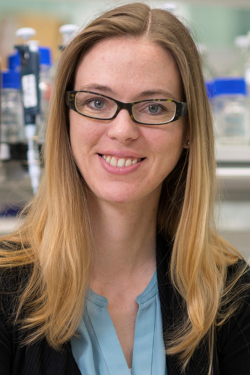
Madeline Lancaster, PhD
MRC Laboratory of Molecular Biology (LMB)
Dr. Madeline Lancaster has pioneered the development of the first method for generating brain organoids—brains grown in the lab that are created from reprogrammed human stem cells, or human induced pluripotent stem (iPS) cells. Her technology is ushering in a new era of neuroscience research. The human brain has evolved several features that may account for many of the cognitive abilities that make humans unique. These specific and singular features also make human brain development difficult to study using animal models. Her work using organoids to investigate brain barriers, primate brain evolution, and foetal brain development will help reveal fundamental knowledge about how human brains evolved and how they are affected by disease.
About the Finalists
Chemistry
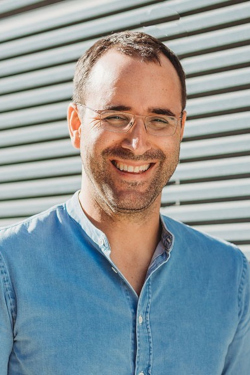
Gonçalo Bernardes, DPhil
University of Cambridge
Dr. Gonçalo Bernardes has produced ground-breaking research in the area of ‘bench-to-clinic’ bioorthogonal chemistry, which involves the control of tailored chemical reactions that can take place in the body without interfering with natural processes. This revolutionary translational research holds great promise for new breakthroughs in gene editing, labelling of specific proteins in living cells, and the development of new therapeutics.
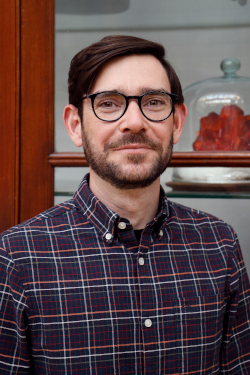
Stephen Thomas, PhD
The University of Edinburgh
Most industrial-scale chemicals manufactured worldwide require at least one catalytic reaction step during production. Catalytic steps save time and energy in the preparation of pharmaceuticals, petrochemicals, fertilizers, and other consumer goods by increasing the rate of the reaction and often lowering the amount of energy required for a transformation to occur. Unfortunately, many catalytic reactions rely on precious metal elements such as platinum, palladium, and rhodium, which are less abundant in nature than other metals, are expensive, and can produce toxic by-products that can harm the environment. Dr. Stephen Thomas has developed a research program focused on the development of sustainable, Earth-abundant metal catalysts that can perform the same chemical transformations as their precious metal counterparts.
Physical Sciences & Engineering

Sarah Haigh, DPhil
The University of Manchester
Prof. Sarah Haigh is a pioneer in advancing transmission electron microscopy (TEM) techniques to explore various new types of nanomaterials for electronic and chemical applications. TEM is a tool to visualise the microscopic structure of materials. Her work in advanced electron microscopy techniques, including new, atomic-resolution imaging methods for probing the behaviour of 2-dimensional materials, as well as for revealing chemical reactions in liquid environments, has significantly impacted the discovery of new nanomaterials. Her research has a broad range of applications, including next-generation electronic hardware, and has now been adopted by scientists worldwide.
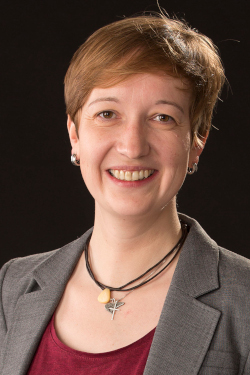
Anja Schmidt, PhD
University of Cambridge
Dr. Schmidt has developed and applied state-of-the-art climate models that have revolutionised our understanding of the role of volcanic eruptions in climate and air quality. Her findings have informed the world’s most authoritative and comprehensive assessment reports by the United Nations Intergovernmental Panel on Climate Change, and generated significant impact on policy in hazard mitigation and health.
Life Sciences
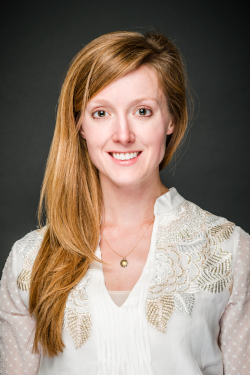
Erin Saupe, PhD
University of Oxford
Dr. Erin Saupe investigates the interactions between life and environments over long geological time scales. By integrating fossil records and modern data, she creates models that characterise how species and communities respond, allowing her to forecast future changes to Earth’s biodiversity as a result of climate change. This is critical because humans rely on Earth’s biodiversity for survival and climate change-induced disruption to ecosystems, including the extinction of species, could impact our standard of living and ability to persist on this planet.
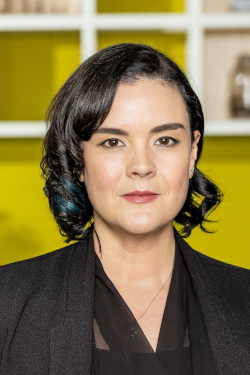
Sonja Vernes, DPhil
University of St Andrews
Dr. Sonja Vernes seeks to understand the evolution and underlying biology of speech and language using bats as a model. Humans and bats share the ability to learn vocalisations that are used for social communication. By studying vocal learning in bats, her research is providing insight into how genes influence learned vocal communication in mammals, how these traits are genetically and neurologically encoded, how they evolved, and the connections between specific genes and severe speech disorders in humans.
About the Blavatnik Awards for Young Scientists
The Blavatnik Awards for Young Scientists, established by the Blavatnik Family Foundation in the United States in 2007 and independently administered by the New York Academy of Sciences, began by identifying outstanding regional scientific talent in New York, New Jersey, and Connecticut. The Blavatnik National Awards were first awarded in 2014, and in 2017 the Awards were expanded to honour faculty-rank scientists in the United Kingdom and in Israel. For updates about the Blavatnik Awards for Young Scientists, please visit www.blavatnikawards.org or follow us on Twitter and Facebook (@BlavatnikAwards).
About the Blavatnik Family Foundation
The Blavatnik Family Foundation is an active supporter of world-renowned educational, scientific, cultural, and charitable institutions in the United States, the United Kingdom, Israel, Russia, and throughout the world. The Foundation is headed by Sir Leonard Blavatnik, a global industrialist and philanthropist and the Founder and Chairman of Access Industries, a privately-held industrial group based in the US with global strategic interests. Visit: www.accessindustries.com or www.blavatnikfoundation.org.
About the New York Academy of Sciences
The New York of Academy of Sciences is an independent, not-for-profit organisation that since 1817 has been committed to advancing science for the benefit of society. With more than 20,000 Members in 100 countries, the Academy advances scientific and technical knowledge, addresses global challenges with science-based solutions, and sponsors a wide variety of educational initiatives at all levels for STEM and STEM related fields. The Academy hosts programmes and publishes content in the life and physical sciences, the social sciences, nutrition, artificial intelligence, computer science, and sustainability. The Academy also provides professional and educational resources for researchers across all phases of their careers. Please visit us online at www.nyas.org.
###